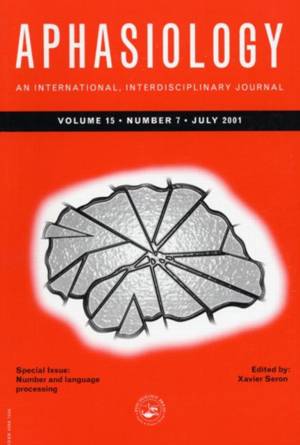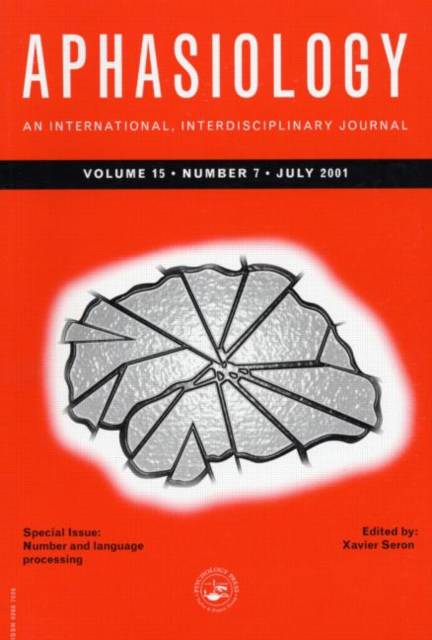
- Afhalen na 1 uur in een winkel met voorraad
- Gratis thuislevering in België vanaf € 30
- Ruim aanbod met 7 miljoen producten
- Afhalen na 1 uur in een winkel met voorraad
- Gratis thuislevering in België vanaf € 30
- Ruim aanbod met 7 miljoen producten
Zoeken
Omschrijving
There is psychological and neurobiological evidence that number and language processing present some specificities and may dissociate after brain damage. Furthermore, animals and babies seem to be able to discriminate small numerosities in a non-symbolic way. However, one of the specificities of the human species is the development of language and symbolic processes. The acquisition and development of arithmetic is thus bound to the acquisition of language and symbolic notations. In this special issue, the relationship between language and number processing is discussed through the examination of the similarities and divergences of language and number disorders in aphasic subjects, in patients with dementia, and in children with specific acquisition deficits. A separate contribution is also devoted to the rehabilitation of number and calculation deficits in brain-lesioned subjects.
Specificaties
Betrokkenen
- Auteur(s):
- Uitgeverij:
Inhoud
- Aantal bladzijden:
- 90
- Taal:
- Engels
- Reeks:
Eigenschappen
- Productcode (EAN):
- 9781841699172
- Verschijningsdatum:
- 2/08/2001
- Uitvoering:
- Paperback
- Formaat:
- Trade paperback (VS)
- Afmetingen:
- 170 mm x 245 mm
- Gewicht:
- 169 g

Alleen bij Standaard Boekhandel
+ 124 punten op je klantenkaart van Standaard Boekhandel
Beoordelingen
We publiceren alleen reviews die voldoen aan de voorwaarden voor reviews. Bekijk onze voorwaarden voor reviews.











